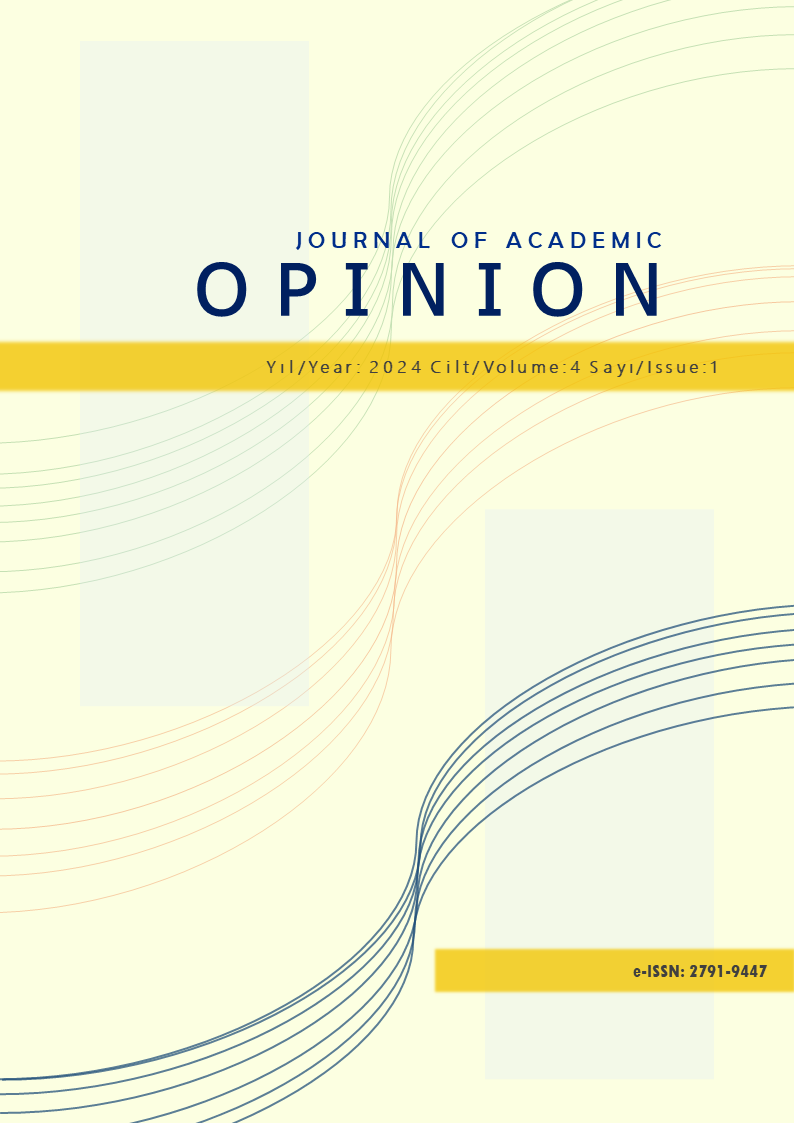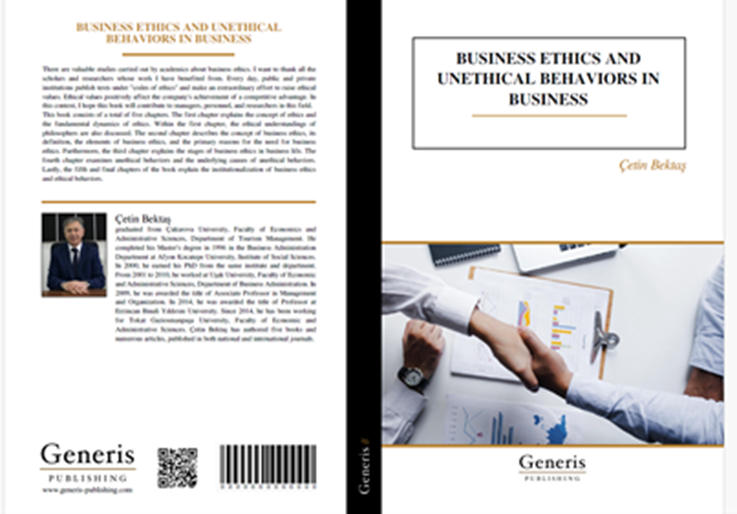Hukukun Üstünlüğü Alt Faktörleri ve Gelir Eşitsizliği: Yüksek Gelir Grubu Ülkelerde Panel Veri Yaklaşımı
Anahtar Kelimeler:
Gelir Eşitsizliği, Yüksek Gelir Grubu Ülkeler, Hukukun Üstünlüğü Alt FaktörleriÖzet
Hukukun üstünlüğü ve gelir eşitsizliği arasındaki ilişki, geçen yüzyılda geniş bir şekilde tartışılmıştır. Hukukun üstünlüğü ile gelir eşitsizliği arasındaki denge, toplumun yapısı için kritik öneme sahip olmasına rağmen, bu ilişki nadiren ele alınmıştır. Bu çalışma, hukukun üstünlüğünün kişi başına düşen gelirdeki eşitsizliklerle nasıl ilişkili olduğunu ve bunun bir ulusun ve bireylerin refahını nasıl etkilediğini nicel bir analizle ortaya koymayı amaçlamaktadır. Bu, ekonomik hukuk alanını siyaset bilimi ile birleştirerek gerçekleştirilecektir. Varlıklı ülkelere odaklanarak, panel veri metodolojisi kullanarak hukukun üstünlüğünün farklı alt faktörlerinin gelir dağılımı üzerindeki etkisini analiz ediyoruz. 2012 ve 2021 yılları arasında 31 yüksek gelirli ülkeden elde edilen veriler kullanılarak, nüfusun en alt yüzde 50'sinin gelir dağılımı değerlendirilmektedir ve hükümetin kısıtlamaları, yolsuzluğun olmaması, açık hükümet, temel haklar, sivil adalet ve ceza adaletinin en düşük gelir dağılımı ile ilişkili olup olmadığı araştırılmaktadır. Sonuçlar, ekonomik kuralların uygulanması ve yargı sisteminin gelir dağılımı üzerinde önemli bir etkiye sahip olduğunu göstermektedir. Bu, adil ve kapsayıcı ekonomik sonuçları teşvik eden iyi yapılandırılmış yasal çerçevelere olan ihtiyacı vurgulamaktadır.
Referanslar
Acemoğlu, D., & Robinson, J. A. (2012). Why Nations Fail: The Origins of Power, Prosperity, and Poverty. New York: Crown Publishing Group.
Aristotle. (1998). Politics (C. D. C. Reeve, Trans.). Indianapolis: Hackett Publishing Company.
Austin, J. (1832). The Province of Jurisprudence Determined. London: John Murray.
Baltagi, B. H. (2005). Econometric analyses of panel data. Chichester: John Wiley.
Baltagi, B. H., & Wu, P. X. (1999). Unequally spaced panel data regressions with AR (1) disturbances. Econometric theory, 15(6), 814-823.
Becker, G. S. (1971). The Economics of Discrimination (2nd ed.). Chicago: University of Chicago Press.
Bhargava, A., Franzini, L., & Narendranathan, W. (1982). Serial correlation and the fixed effects model. The review of economic studies, 49(4), 533-549.
Botero, J. C., & Ponce, A. (2010). Measuring the Rule of Law. Retrieved from
Breusch, T. S., & Pagan, A. R. (1979). A simple test for heteroscedasticity and random coefficient variation. Econometrica, 47(5), 1287-1294.
Buchanan, J. M., & Tullock, G. (1962). The Calculus of Consent: Logical Foundations of Constitutional Democracy. Ann Arbor: University of Michigan Press.
Chancel, L., Piketty, T., Saez, E., & Zucman, G. (2021). World Inequality Report. 2022. Retrieved from
Cooter, R. D., & Ulen, T. (2012). Law and Economics (6th ed.). Boston, MA: Addison-Wesley.
Dicey, A. V. (1959). Introduction to the study of the law of the constitution (10th ed.). London: Macmillan.
Dimick, M. (2016). Should the law do anything about economic inequality? . Cornell Journal of Law and Public Policy, 26(1), 1-66.
Driscoll, J. C., & Kraay, A. C. (1998). Consistent Covariance Matrix Estimation with Spatially Dependent Panel Data. The Review of Economics and Statistics, 80(4), 549-560. doi:10.1162/003465398557825
Fantom, N. J., & Serajuddin, U. (2016). The World Bank’s classification of countries by income. Retrieved from
Freeman, M. D. A. (2008). Lloyd's introduction to jurisprudence (8th ed.). London: Sweet & Maxwell.
Frees, E. W. (1995). Assessing Cross-Sectional Correlation in Panel Data. Journal of Econometrics, 69, 393-414.
Friedman, M. (1937). The Use of Ranks to Avoid the Assumption of Normality Implicit in the Analysis of Variance. Journal of the American Statistical Association, 32, 675-701.
Haggard, S., & Tiede, L. (2011). The Rule of Law and Economic Growth: Where are We? . World Development, 39(5), 673-685. doi:https://doi.org/10.1016/j.worlddev.2010.10.007
Hausman, J. A. (1978). Specification tests in econometrics. Econometrica: Journal of the econometric society, 1251-1271.
Hayek, F. A. (1944). The Road to Serfdom. Chicago: University of Chicago Press.
Hongdao, Q., Mumtaz, A., Mukhtar, H., Rahman Saleem, H. A., & Azam, S. (2018). Corruption prevention and economic growth: Mediating effect of rule and law. International Journal of Social Science Studies, 6(2), 128-143. doi:https://doi.org/10.11114/ijsss.v6i2.2946
Kaplow, L., & Shavell, S. (1994). Why the Legal System Is Less Efficient than the Income Tax in Redistributing Income. The Journal of Legal Studies, 23(2), 667-681.
Kelsen, H. (1967). Pure Theory of Law (M. Knight, Trans.). Berkeley: University of California Press.
Lustgarten, L. (1988). Socialism and the rule of law. Journal of Law and Society, 15(1), 25-41. doi:https://doi.org/10.2307/1410118
Menger, C. (1871). Principles of Economics (J. D. a. B. F. Hoselitz, Trans.). Glencoe, IL: Free Press.
Mises, L. v. (1949). Human Action: A Treatise on Economics. New Haven: Yale University Press.
Mizan, R., & Maxwell, L. K. (1997). Modified Wald test for groupwise heteroskedasticity. Economics Letters, 56(1), 61-68.
Mueller, D. C. (1979). Public Choice. Cambridge: Cambridge University Press.
Plato. (2000). The Republic (T. Griffith, Trans.). Cambridge: Cambridge University Press.
Ranasinghe, A., & Restuccia, D. (2018). Financial frictions and the rule of law. Journal of Development Economics, 134, 248-271. doi:https://doi.org/10.1016/j.jdeveco.2018.05.009
Raz, J. (1979). The authority of law: Essays on law and morality. Oxford: Oxford University Press.
Stiglitz, J. E. (2012). The Price of Inequality: How Today's Divided Society Endangers Our Future. New York: W.W. Norton & Company.
WID. (2022). World Inequality Database. Retrieved from: https://wid.world/data/
WJP. (2023). Behind the Numbers. In WJP Rule of Law Index (pp. 181-189): World Justice Project.
World Bank, R. (2017). World Development Report 2017: Governance and the Law. Retrieved from Washington, DC:
İndir
Yayınlanmış
Nasıl Atıf Yapılır
Sayı
Bölüm
Lisans
Telif Hakkı (c) 2024 Journal of Academic Opinion

Bu çalışma Creative Commons Attribution 4.0 International License ile lisanslanmıştır.





